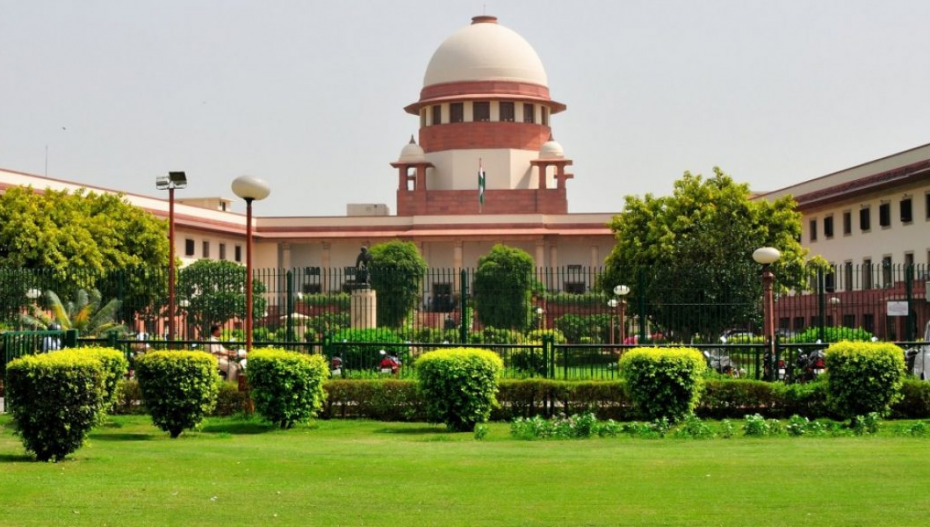In a landmark order, the Supreme Court today said that the 152-year-old sedition law under Section 124A of the Indian Penal Code should be effectively kept in abeyance till the Union Government reconsiders the provision.
A three-judge bench, in its interim order, directed the Centre and the state governments to desist from taking any coercive steps under Section 124A. The bench comprising Chief Justice of India N.V. Ramana, Justice Surya Kant, and Justice Hima Kohli, held that if any fresh cases are filed, the aggrieved parties may approach the court for relief.
Adjudication with respect to other sections may proceed with no prejudice being caused to the accused, it held. The Court also held that those already booked under Section 124A IPC and in jail can approach the concerned courts for bail.
The bench said in its order : “We hope and expect Centre and State Governments will refrain from registering any FIR, continuing investigation, or taking coercive steps under Section 124 A IPC when it is under reconsideration. It will be appropriate not to use this provision of law till further re-examination is over.’’
The Apex Court passed the order in response to a clutch of petitions filed by the Editors Guild of India, Major General S.G. Vombatkere (retired), former Union Minister Arun Shourie, Peoples Union for Civil Liberties and others.
Section 124 A defines sedition as “Whoever, by words, either spoken or written, or by signs, or by visible representation, or otherwise, brings or attempts to bring into hatred or contempt, or excites or attempts to excite disaffection towards, the Government established by law shall be punished with imprisonment for life, to which fine may be added…’’
The sedition law which is enshrined in Section 124A of the Indian Penal Code (IPC) was introduced by the British government in 1870 to tackle dissent against colonial rule.
This draconian law was once used against Mahatma Gandhi and independence activist Lokmanya Bal Gangadhar Tilak by the British. It is worth mentioning that the British colonial authorities called Tilak “the father of the Indian unrest.’’
The law allows arrest without a warrant if a person is accused of anti-government activities. In 1922, Gandhi was arrested on charges of sedition in Bombay for taking part in protests against the colonial government. He was sentenced to six years in prison but was released after two years because of medical reasons. Before Gandhi, Tilak faced three trials in cases related to sedition and was imprisoned two times.
In a Press statement issued today, the Editors Guild of India said that it is extremely pleased that in response to its petition challenging the sedition law (IPC 124A), the Supreme Court of India has passed an interim order to keep the law in abeyance, until the Union Govt reconsiders it.
Hailing the interim order, the Guild said that the sedition law has been used far too often by Central and State governments against journalists in an effort to curb independent reporting.
It may be worth looking at controversial sedition cases in the last 12 year.
- In January 2022, a Delhi court framed sedition charges against Jawaharlal Nehru University (JNU) student Sharjeel Imam for his speech during the protests against the Citizenship Amendment Act (CAA) and National Register of Citizens (NRC) in the national capital. The Delhi Police alleged that Sharjeel had made speeches in Jamia Millia Islamia and Aligarh Muslim University and threatened to cut off Assam and Northeast from the rest of India. He was even charged under the Unlawful Activities Prevention Act. Sharjeel is in judicial custody since January 2020.
- A 22-year-old climate change activist, Disha Ravi, was charged with sedition after being arrested on February 13 last year in connection with a “toolkit” relating to the farmers’ protest. She was granted bail a little over a week after her arrest by a Delhi court which observed, “Sedition cannot be invoked to minister to the wounded vanity of the government”.
- Manipur-based journalist Kishore Chandra Wangkhem was arrested in September 2020 by police on charges of sedition and promoting enmity between different groups for a social media post in 2018. He had criticised Prime Minister Narendra Modi, Rashtriya Swayamsevak Sangh (RSS) and Manipur Chief Minister N Biren Singh in his social media post. He was also charged under the draconian National Security Act (NSA).
- Former JNU Students’ Union President Kanhaiya Kumar and nine other students, including Umar Khalid, were charged with sedition for allegedly raising anti-India slogans during a protest in the university campus in 2016. A case was registered in February 2016 by Delhi Police under Sections 124A and 120B of the IPC.
- Patidar quota agitation leader Hardik Patel, who has now joined Congress, was charged with sedition following in his rally in August 2015. He was arrested and released on bail.
- Civil rights activist Dr Binayak Sen was sentenced to life imprisonment on charges of sedition by a Chhattisgarh court. Dr Sen was convicted for colluding with Naxals to establish a network to fight with the state. In April 2011, the Supreme Court granted him bail.
- Noted writer and activist Arundhati Roy was booked in November 2010 on charges of sedition by Delhi Police for her alleged anti-India speech at a seminar in Delhi.












